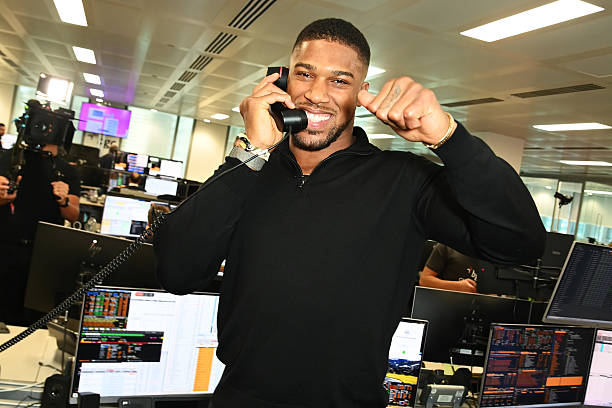Anthony Joshua’s decision to fight Jake Paul on 19 December in Miami has sent shockwaves through both the boxing world and mainstream entertainment. While crossover bouts are no longer rare, this match-up feels different—bigger, louder, and far more divisive.
Boxing analyst Steve Bunce summed it up bluntly: Joshua was given “an offer he simply couldn’t refuse.”
That offer reportedly stands at around £36.9m, and at 36 years old, Joshua appears ready to cash in. His career has already seen Olympic gold, two unified world titles, stadium nights and multimillion-pound Saudi spectacles. But with his prime years slipping behind him, the Paul fight represents both an enormous payday and one of the final chapters of an illustrious career.
For Jake Paul, a YouTuber-turned-boxer with 12 wins from 13 bouts, the fight is another leap into heavyweight attention. But the physical gap between the two men is startling. Joshua is six inches taller, naturally four stone heavier, and has spent more than a decade competing against the world’s elite. Paul, by contrast, is a cruiserweight novice—talented, driven, and well-promoted, but nowhere near Joshua’s pedigree.
Bunce didn’t hide his disdain for the match-up, calling it “ridiculous” and highlighting its obvious mismatch. Yet he admitted he understands the commercial logic. Paul’s spectacle with Mike Tyson in 2024 attracted staggering global numbers, making him one of boxing’s biggest draws despite traditionalists’ frustration. If Joshua wants a final blockbuster payday while boosting his foundation and community work, Bunce has “no problem with it.”
Still, the fight has sparked serious concerns. Former middleweight Nick Blackwell—forced into retirement after a life-changing brain injury—warned that Joshua could “do what he wants” in the ring and called the bout “so dangerous.” Others argue that Paul’s team is playing up the risk while downplaying the gulf in skill.
Nakisa Bidarian, co-founder of Most Valuable Promotions and Paul’s manager, insists the fight is safe. He believes Paul has a “great shot,” pointing to Joshua’s slowing reflexes and vulnerability to movement. But that optimism isn’t shared widely in boxing circles. Many remember how Francis Ngannou—billed as an unstoppable powerhouse—was flattened brutally by Joshua in 2024 despite pushing Tyson Fury months earlier. Bunce argues that if a 20-stone UFC champion was dispatched in two rounds, the scenario for the much smaller Paul could be far more alarming.
What cannot be denied is the global reach of the event. Bidarian has gone as far as calling it “the biggest combat sports event of 2025,” predicting it will surpass even Joshua’s heavyweight title nights. He argues that, like Tyson’s exhibition with Paul, the crossover nature of the fight pulls in a wider, younger, digital audience.
For Joshua, though, there’s a tug of legacy versus livelihood. Bunce admits that from a purist’s perspective, this is not the dignified ending a two-time world champion merits. Fans wanted Joshua vs. Tyson Fury years ago, not a late-career spectacle against a YouTube star. Yet boxing’s recent history is full of such detours. The sport, as Bunce jokes, has seen worse—including heavyweight Chuck Wepner famously fighting a bear twice.
In truth, the Joshua-Paul fight reflects what modern boxing has become: a blend of athletic achievement, celebrity power, and global entertainment. Purists may grimace, but millions will watch. And for Joshua, nearing the end, the allure of a massive payday and worldwide spotlight is simply too strong to resist.
Whether this bout adds to his legacy or becomes a curious footnote, only the fight itself will decide.



